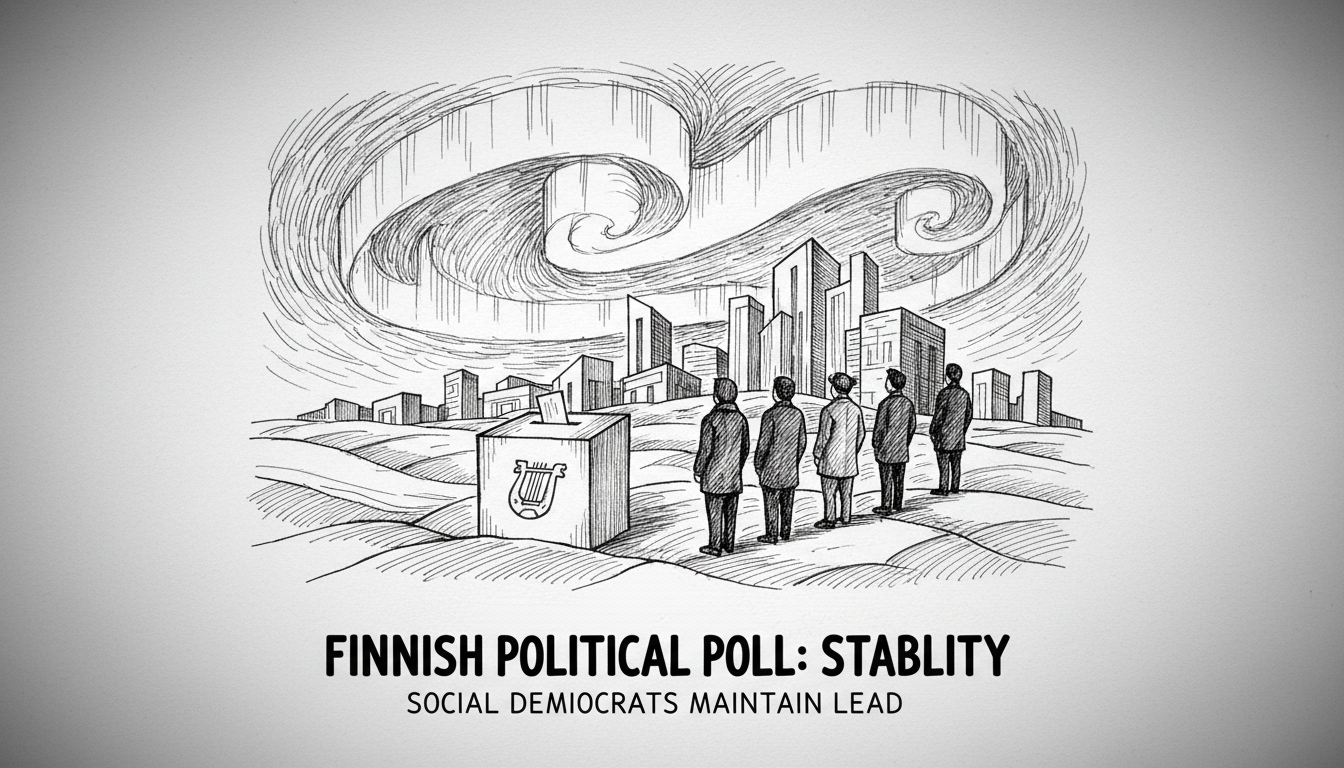Finland's Social Democratic Party continues as the country's most popular political party according to recent polling data. The opposition party maintains its position ahead of other major political groups in the Nordic nation.
The Finns Party gained the most support in the latest survey. Their popularity increased by 0.6 percentage points compared to the previous measurement. This growth follows a mid-summer decline in their support numbers.
The center-right National Coalition Party ranks as Finland's second most popular party. The Centre Party holds third position despite losing 0.4 percentage points in support. The Finns Party remains in fourth place overall.
All changes in party support fall within the survey's statistical margin of error. The polling period covered October 13 through November 16. During this time, Finnish media reported extensive public discussion about healthcare services and the proposed Western Rail Line infrastructure project. Parliament parties also reached agreement on debt brake measures.
Research company Verian conducted the political survey. The organization interviewed 3,971 people through an internet panel. The study carries a margin of error of approximately 1.6 percentage points in either direction.
Finnish politics operates through a multi-party system where coalition governments are common. The current government coalition includes the National Coalition Party, The Finns Party, the Swedish People's Party, and the Christian Democrats. This center-right alliance holds a parliamentary majority.
Political analysts note that small shifts in party support can influence government stability in Finland's consensus-driven political culture. The country will hold its next parliamentary elections in 2027 under the four-year electoral cycle.
International observers of Nordic politics should note that Finland's party system differs from its Scandinavian neighbors. The country maintains distinct political traditions while sharing the region's characteristic welfare state model and high levels of political participation.
The polling results suggest relative stability in Finnish voter preferences as the country navigates economic challenges and security policy considerations following NATO membership. The data provides insights into public opinion as the government approaches the midpoint of its electoral term.

